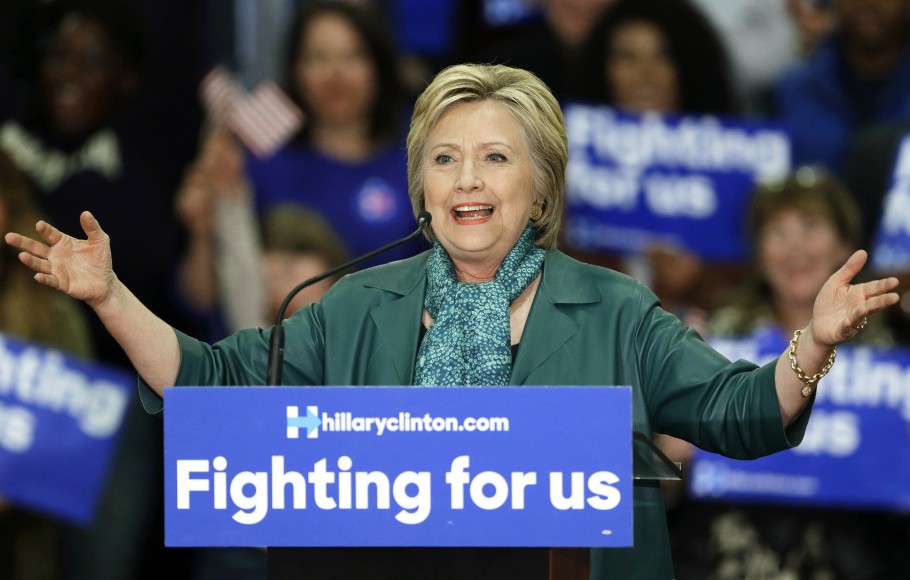On Tuesday night, former Secretary of State Hillary Clinton became the first woman to claim the presidential nomination of a major American political party. It is a historic moment – but she, and the nation, have little breathing space to savor the milestone.
There is, first, the question of Vermont Sen. Bernie Sanders. Sanders has fought hard, and he has won much along the way. The issues that matter to many of his supporters, such as income inequality, financial reform, health care expansion and campaign finance, have come front and center – with Clinton’s campaign paying them more attention than might otherwise have been the case. But Sanders has also lost, by every measure: delegates, primaries, total votes. It’s time for him to concede while there is still a chance to do it with grace and to clear the road for Clinton to battle Donald Trump.
Which raises the second question: What kind of campaign will Clinton wage? We hope she will focus not only on the negative. It’s understandable for Clinton to run an anti-Trump campaign in the face of his unprecedented ugliness and bigotry. Yet surely one effective antidote to his vacuity would be substance; one answer to his divisiveness, a commitment to civil dialogue and a respect for independents and Republicans who will disagree with many of her views.
Clinton was widely praised, for example, for her searing attack last week on Trump’s unfitness to lead as commander in chief. Fine, but as presumptive Democratic nominee, she also will need to fill in the blanks of her own foreign policy intentions. A day after her speech, 13 military and diplomatic leaders wrote a letter to President Obama pressing him not to withdraw any more troops from Afghanistan during the rest of his term. What is Clinton’s view on that question? Her foreign policy speech offered no clue, but voters deserve to know. As we noted recently, her refusal to hold news conferences doesn’t help.
Clinton began her campaign – long, long ago – on the premise that voters would embrace an experienced leader offering substantive, pragmatic policy proposals. With Trump and Sanders ascendant, the market for substance and pragmatism came to seem limited at best, and Clinton understandably made some course corrections. But her initial judgment about what the nation needs was right. Now she has a second chance to explain how her deeply held convictions would influence her policymaking, and how she would accomplish her policy goals in what will remain, no matter who controls Congress, a deeply divided country.
As the first female nominee in the nation’s history, Clinton is already a role model of one kind. In providing a positive, substantive platform over the coming months, she could become a role model of another important sort – as a leader who respects the art of governing, the fragile beauty of our constitutional system and the prerogatives of its citizens to make an informed choice.
Send questions/comments to the editors.



Success. Please wait for the page to reload. If the page does not reload within 5 seconds, please refresh the page.
Enter your email and password to access comments.
Hi, to comment on stories you must . This profile is in addition to your subscription and website login.
Already have a commenting profile? .
Invalid username/password.
Please check your email to confirm and complete your registration.
Only subscribers are eligible to post comments. Please subscribe or login first for digital access. Here’s why.
Use the form below to reset your password. When you've submitted your account email, we will send an email with a reset code.